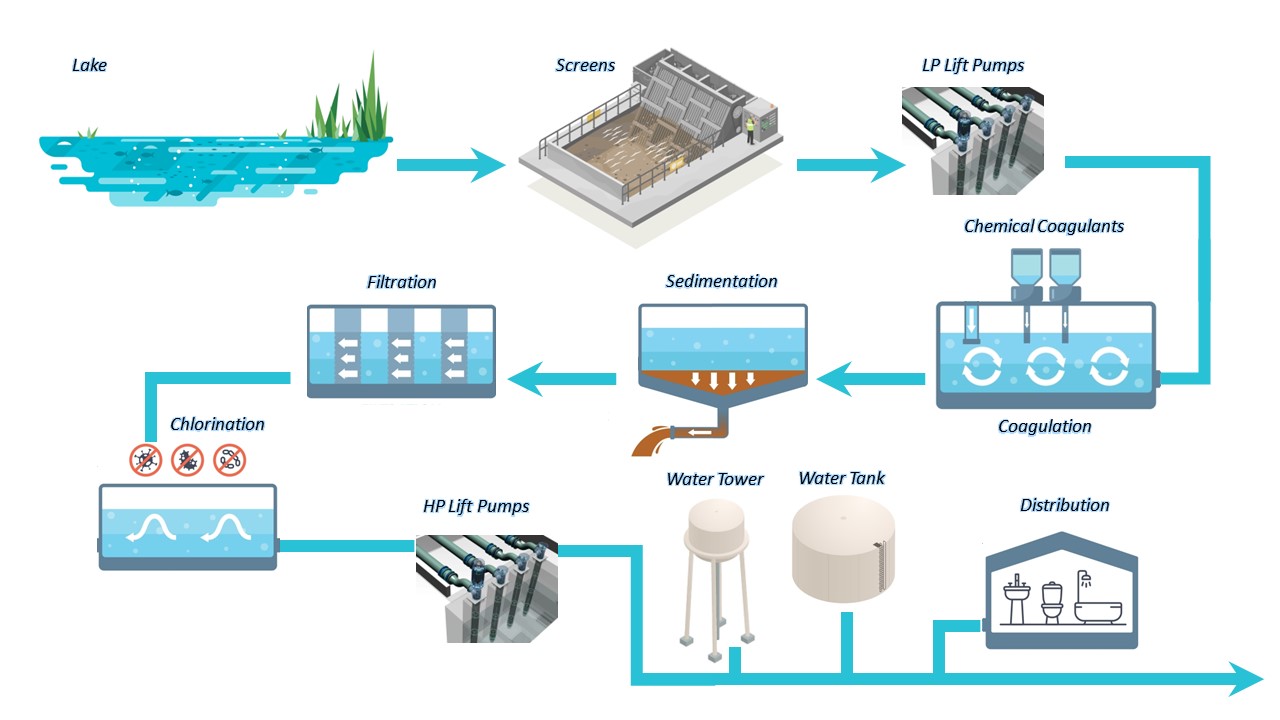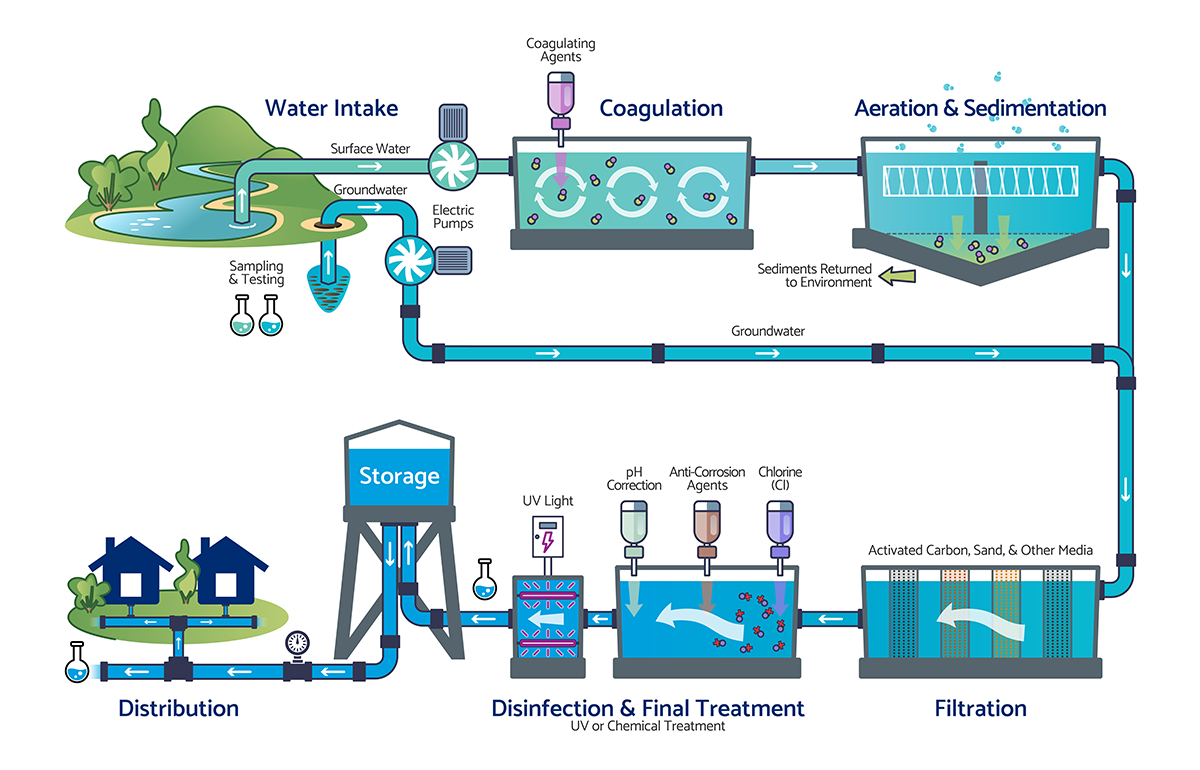Checking Out Water Technology Startups: Exactly How They Transform Sustainable Solutions
Water Technology start-ups are becoming important players in the quest for lasting solutions to global water problems. These business leverage cutting-edge modern technologies to enhance water effectiveness and monitoring. Their payments resolve pressing challenges such as shortage and contamination. Nonetheless, in spite of their possibility, they encounter different barriers that could affect their success. Recognizing these characteristics drops light on the future of water sustainability and the function these startups may play in shaping it.
The Importance of Water Technology in Today's Globe
As international water shortage heightens, the importance of water Technology becomes progressively evident. Water Technology plays a vital role in dealing with the difficulties presented by increasing and lessening fresh water sources demand. It encompasses a wide variety of innovations, consisting of innovative purification systems, wastewater treatment technologies, and smart watering solutions. These innovations not only boost the performance of water usage however additionally advertise sustainable practices across various markets, consisting of farming, industry, and urban development.
The value of water Technology extends past source management. It cultivates strength versus environment adjustment effects, such as droughts and floods, by giving flexible remedies for water conservation and management. Additionally, it supports public wellness by ensuring accessibility to risk-free and clean drinking water. As the world faces growing water-related obstacles, the assimilation of sophisticated water technologies is essential for fostering sustainable development and protecting water availability for future generations.
Innovative Solutions From Water Tech Startups
While typical strategies to water monitoring have served their objective, a new age of water tech start-ups is changing the sector with cutting-edge options (Water Technology Startups). These business utilize innovative technologies to deal with pressing water issues, such as shortage, contamination, and ineffective circulation. Several startups make use of artificial intelligence and maker discovering to maximize water use and anticipate demand, causing even more lasting techniques
Furthermore, numerous companies concentrate on developing sophisticated filtration systems that eliminate toxins and make water secure for intake. Others discover decentralized water treatment innovations, permitting areas to handle their water sources better. Some startups are introducing wise irrigation services that reduce water waste in farming, advertising ecological conservation.
Instance Researches: Effective Water Technology Startups
Many water Technology start-ups have arised as leaders in resolving worldwide water obstacles through innovative strategies. One significant example is Xylem, which concentrates on water analytics and wise framework to enhance water usage and reduce waste. Their options have actually been applied in different municipalities, showing considerable enhancements in water management effectiveness.
One more successful startup, Absolutely no Mass Water, has actually established solar-powered hydropanels that remove water vapor from the air, giving sustainable drinking water in deserts. Water Technology Startups. This Technology has been deployed in several nations, making sure areas have accessibility to clean water
Last But Not Least, AquaVenture Holdings operates a varied portfolio of water-as-a-service solutions, dealing with water scarcity via desalination and wastewater therapy. Their tasks have actually verified important in regions encountering severe water shortages, showcasing the potential of cutting-edge water innovations to develop lasting, positive influences. These situation researches highlight the transformative potential of start-ups in the water Technology field.
The Function of Smart Technology in Water Administration
Smart Technology plays a vital duty in contemporary water management by leveraging IoT applications to maximize resource usage. Information analytics improves effectiveness by providing workable insights, while remote monitoring services enable real-time oversight of water supply. Together, these advancements transform exactly how water is taken care of, advertising sustainability and functional performance.
IoT Applications in Water
As water shortage and administration difficulties intensify globally, the combination of Net of Things (IoT) applications has become a critical option in optimizing water sources. IoT Technology assists in real-time surveillance and analysis of water systems, enabling much more efficient use and management. Sensing units released in numerous water infrastructures can track top quality, circulation rates, and leak, giving valuable data to stakeholders. This data empowers consumers and utilities to make enlightened decisions, lowering waste and enhancing conservation initiatives. In addition, smart irrigation systems utilize IoT to enhance water delivery for agriculture, making certain that crops obtain the appropriate amount of water at the correct time. Generally, IoT applications are transforming conventional water management methods, promoting sustainability and strength in water source systems.
Data Analytics for Effectiveness
Harnessing data analytics is vital for boosting efficiency in water monitoring. Water Technology startups are increasingly using innovative analytics to maximize source appropriation and decrease waste. By assessing data from numerous sources, these startups can identify patterns and patterns that inform better decision-making. For example, predictive analytics can anticipate water need, enabling utilities to readjust supply accordingly, thereby lessening scarcities and surpluses. Furthermore, real-time information handling makes it possible for the prompt discovery of leakages and inefficiencies within distribution systems, significantly minimizing operational costs. Additionally, data-driven understandings encourage stakeholders to implement targeted preservation techniques, fostering lasting methods. Essentially, incorporating data analytics right into water monitoring not only simplifies procedures yet likewise promotes long-term sustainability in water source use.
Remote Tracking Solutions
While typical water management systems usually battle with inadequacies, remote monitoring solutions are changing exactly how water sources are taken care of. These innovative innovations make it possible for real-time data collection and analysis, allowing stakeholders to monitor water quality, flow rates, and use patterns from afar. Utilizing sensors and IoT gadgets, remote surveillance supplies instant understandings that help with aggressive decision-making. This shift not just enhances functional performance however also promotes sustainability by decreasing water waste and optimizing source allowance. In addition, remote tracking systems can recognize prospective problems before they rise, consequently minimizing the risk of contamination or facilities failing. As water Technology start-ups proceed to establish these remedies, the market is positioned for significant improvements in sustainable water monitoring methods.
Obstacles Facing Water Technology Startups
Water Technology startups experience considerable challenges that can impede their development and success. Secret issues include securing sufficient funding, navigating with complex regulative settings, and competing in a jampacked market. These challenges require strategic preparation and technology to get over.
Funding and Investment Challenges
Development in water Technology holds tremendous possibility for resolving global difficulties, startups in this market usually deal with considerable funding and financial investment hurdles. Several capitalists continue to be careful, regarding the water industry as high-risk as a result of its complicated governing landscape and long advancement timelines. Additionally, start-ups often battle to demonstrate instant productivity, which can deter prospective backers. Conventional equity capital might ignore water innovation, preferring sectors with quicker returns, such as technology or consumer products. Protecting gives and government financing can be affordable and time-consuming, additional making complex economic stability. Consequently, numerous ingenious water Technology start-ups locate themselves in a precarious setting, requiring innovative funding techniques to navigate these economic obstacles and accomplish their objectives
Regulative Conformity Issues
Steering regulatory compliance is a significant challenge for startups in the water Technology sector, as they must website grapple with a myriad of local, national, and international policies. These policies usually incorporate water top quality requirements, ecological security legislations, and safety and security procedures, which can vary commonly across jurisdictions. Startups may locate it hard to navigate this complex landscape, specifically when scaling operations or going into brand-new markets. The prices connected with conformity can be considerable, diverting sources away from development and item growth. Furthermore, hold-ups in obtaining required licenses or accreditations can prevent growth and market entrance. As a result, a robust understanding of governing structures is necessary for these startups to ensure lasting procedures and avoid possible legal effects.
Market Competition Characteristics
As water Technology startups emerge in a competitive landscape, they deal with numerous challenges that can restrain their growth and innovation. Established companies typically dominate the marketplace, leveraging sources and experience to maintain their settings. Startups deal with restricted financing, which limits r & d capabilities, making it hard to compete on Technology and rates. In addition, the swiftly progressing nature of water innovations demands continuous adjustment, additional straining start-up resources. Governing hurdles can make complex market entrance, as compliance with environmental requirements is important yet costly. Lastly, drawing in competent talent in a specific niche field provides another barrier, as bigger companies may supply even more attractive work bundles. Consequently, these variables create a complicated environment for water Technology start-ups intending to prosper.

The Future of Water Technology and Sustainability

The future of water Technology will likely concentrate on integrating expert system and data analytics to maximize water circulation and use patterns. By taking advantage of real-time data, companies can predict scarcities and take care of sources better. In addition, lasting practices will certainly end up being a keystone of the sector, motivating circular economies where water is reused and treated. Ultimately, the continued advancement of water Technology will certainly be vital in creating resistant facilities with the ability of satisfying the challenges presented by environment modification and population growth while advertising environmental stewardship.
Regularly Asked Concerns
What Are the Secret Metrics for Reviewing Water Technology Startups?
Secret metrics for assessing water Technology startups include market potential, scalability, customer procurement costs, profits growth, modern technology innovation, regulatory compliance, ecological influence, affordable benefit, and team know-how, all crucial for figuring out long-lasting practicality and success.
Just How Can People Assistance Water Technology Innovations?
People can sustain water Technology developments by purchasing startups, promoting for policy changes, taking part in neighborhood efforts, sharing expertise concerning sustainable methods, and advertising recognition of water concerns with social media sites and local events.
What Are Common Funding Sources for Water Technology Startups?
Typical financing sources for water tech startups consist of endeavor funding, government gives, crowdfunding systems, angel capitalists, and company partnerships. These economic methods assist assist in technology and development in sustainable water management innovations.

Which Industries Advantage The Majority Of From Water Technology Advancements?
Industries such as farming, power, production, and local solutions benefit significantly from water Technology innovations. These advancements enhance water performance, reduce expenses, and advertise lasting methods, inevitably adding to ecological preservation and source management.
Are There Any Type Of Regulative Difficulties Particular to Water Innovation?
Yes, water Technology deals with regulative challenges, including conformity with environmental requirements, allowing procedures, and differing local laws. These intricacies can hinder advancement and slow the application of brand-new technologies in the water management sector.
Water Technology startups are emerging as essential players in the mission for lasting remedies to global water issues. As international water scarcity increases, the relevance of water Technology comes to be progressively apparent. Others explore decentralized water treatment innovations, permitting neighborhoods to handle their water sources much more successfully. Another successful start-up, Absolutely no Mass Water, has actually developed solar-powered hydropanels that draw out water vapor from the air, giving lasting alcohol consumption water in dry areas. Their tasks have proven crucial in regions encountering serious water scarcities, showcasing the capacity of innovative water innovations to produce lasting, positive effects.